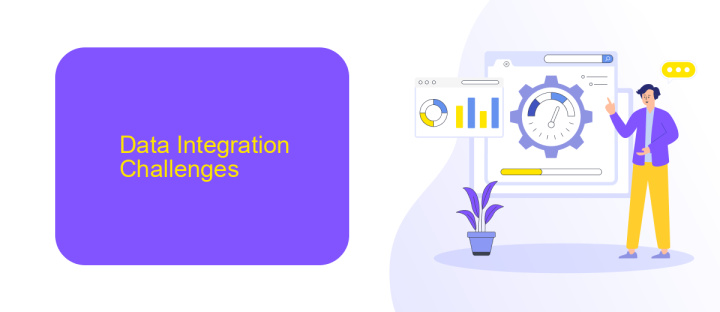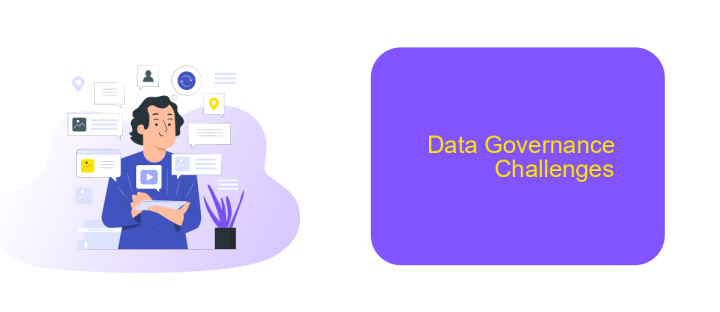Big Data Integration Challenges
Big Data integration presents a complex landscape filled with numerous challenges. As organizations strive to harness the power of vast and diverse data sources, they encounter issues related to data quality, scalability, and interoperability. Addressing these challenges is crucial for unlocking the full potential of Big Data, enabling more informed decision-making and driving innovation across various industries.
Introduction
Big Data integration is a critical aspect of modern data management, enabling organizations to consolidate diverse data sources into a unified system. However, this process presents unique challenges that can hinder effective data utilization and decision-making.
- Data Quality and Consistency: Ensuring data accuracy and uniformity across various sources.
- Scalability: Managing the growing volume, velocity, and variety of data.
- Compatibility: Integrating disparate data formats and systems.
- Security and Privacy: Protecting sensitive data during integration.
- Real-time Processing: Achieving timely data integration for immediate insights.
Addressing these challenges requires robust tools and strategies. Services like ApiX-Drive facilitate seamless data integration by automating data transfer between applications, ensuring data consistency, and enhancing scalability. By leveraging such solutions, organizations can streamline their data integration processes, enabling more efficient and effective data management.
Data Integration Challenges

One of the primary challenges in data integration is the diversity of data sources. Organizations often need to integrate data from various databases, cloud services, and third-party APIs, each with its own format and structure. This heterogeneity makes it difficult to create a unified view of the data, leading to potential inconsistencies and errors. Additionally, the volume of data can be overwhelming, making it challenging to process and analyze in a timely manner.
Another significant challenge is ensuring data quality and consistency. Inconsistent data can lead to inaccurate insights and poor decision-making. To address this, organizations can utilize integration services like ApiX-Drive, which streamline the process by automating data synchronization between different systems. ApiX-Drive helps maintain data accuracy and reduces the manual effort required for integration, thereby enhancing overall efficiency. However, even with such tools, organizations must continuously monitor and manage their data to ensure its integrity and reliability.
Technical Challenges

Integrating Big Data presents numerous technical challenges that organizations must navigate to ensure seamless data flow and utilization. One of the primary issues is data variety, as data comes in diverse formats and structures, making it difficult to unify and process effectively. Additionally, data volume poses a significant challenge, requiring robust infrastructure to handle and store vast amounts of information efficiently.
- Data Variety: Handling different data formats and structures.
- Data Volume: Managing and storing large datasets.
- Data Velocity: Processing data in real-time or near real-time.
- Data Quality: Ensuring data accuracy, consistency, and reliability.
- Security and Privacy: Protecting data from breaches and ensuring compliance with regulations.
To address these challenges, organizations can leverage integration services like ApiX-Drive, which simplifies the process of connecting various data sources and automating workflows. By utilizing such tools, businesses can mitigate complexities associated with Big Data integration, ensuring that data is accessible, reliable, and secure.
Data Governance Challenges

Data governance is a critical aspect of managing big data integration, ensuring that data is accurate, consistent, and secure. One of the primary challenges in data governance is maintaining data quality across various sources and formats. As organizations integrate data from multiple systems, discrepancies and inconsistencies can arise, complicating the process of deriving meaningful insights.
Another significant challenge is ensuring data privacy and compliance with regulatory requirements. With the increasing volume of data being collected and shared, organizations must implement robust data governance frameworks to protect sensitive information and comply with regulations such as GDPR and CCPA. Failure to do so can result in severe legal and financial repercussions.
- Data quality and consistency
- Data privacy and regulatory compliance
- Scalability of data governance frameworks
- Integration of diverse data sources
To address these challenges, tools like ApiX-Drive can be instrumental. ApiX-Drive offers seamless integration capabilities, automating data transfer between various systems and ensuring that data governance policies are consistently applied. By leveraging such tools, organizations can enhance their data governance practices, ensuring data integrity and compliance across all integrated systems.
Future Trends and Conclusion
As we look to the future, the landscape of Big Data integration is set to evolve with advancements in artificial intelligence and machine learning. These technologies are expected to streamline data integration processes, making it easier to handle large volumes of data from diverse sources. Additionally, the growing adoption of cloud-based solutions will facilitate more seamless and scalable integration efforts, enabling organizations to leverage data more effectively for strategic decision-making.
In conclusion, while Big Data integration presents numerous challenges, the future holds promising trends that will simplify these complexities. Tools like ApiX-Drive are already making significant strides by offering automated data integration services, reducing the need for manual intervention and minimizing errors. By staying abreast of these innovations, businesses can better navigate the intricate landscape of Big Data, turning potential obstacles into opportunities for growth and efficiency.
FAQ
What are the common challenges in Big Data integration?
How can I ensure data quality during integration?
What are data silos and how do they affect Big Data integration?
How can automation help in Big Data integration?
What are the best practices for securing data during integration?
Apix-Drive is a simple and efficient system connector that will help you automate routine tasks and optimize business processes. You can save time and money, direct these resources to more important purposes. Test ApiX-Drive and make sure that this tool will relieve your employees and after 5 minutes of settings your business will start working faster.

